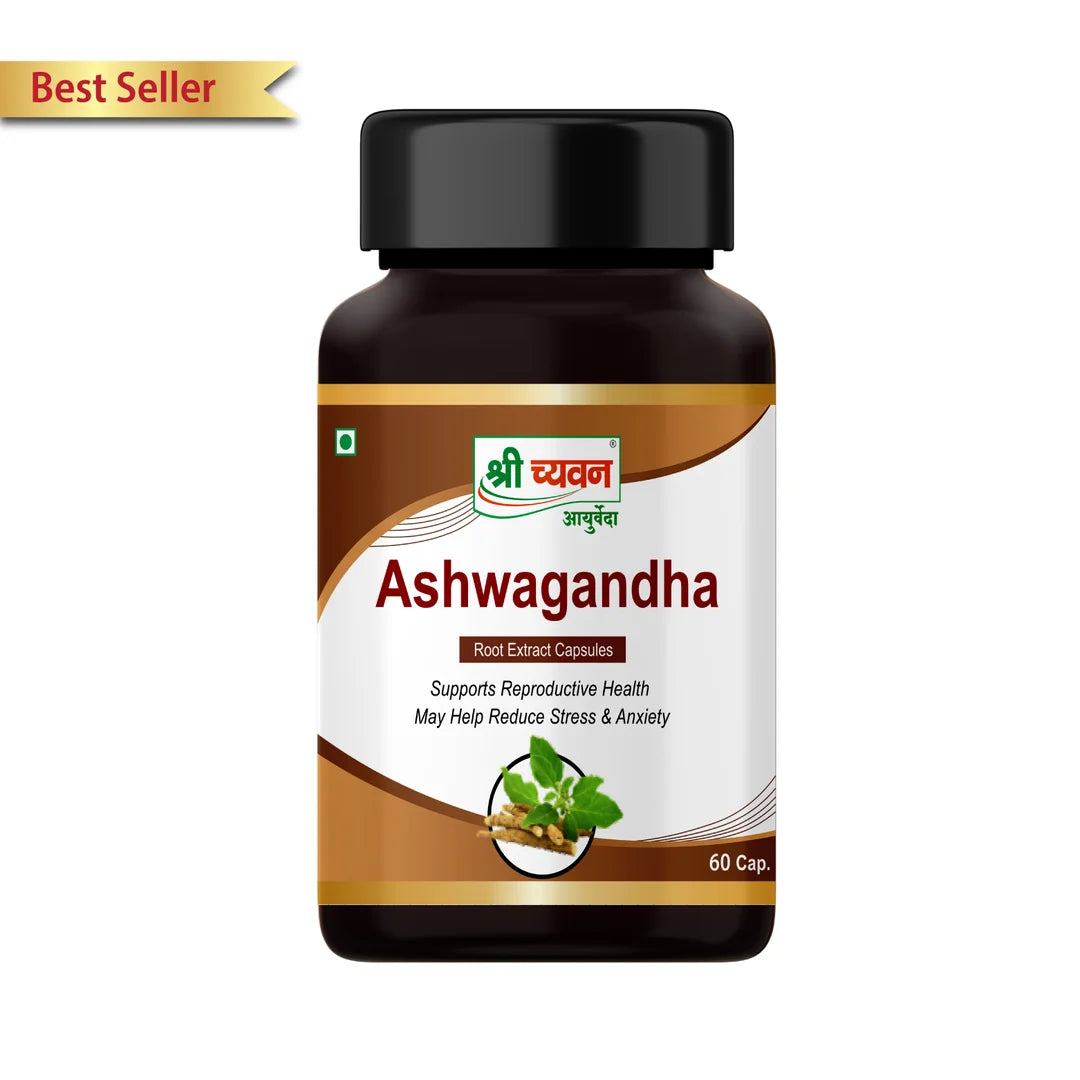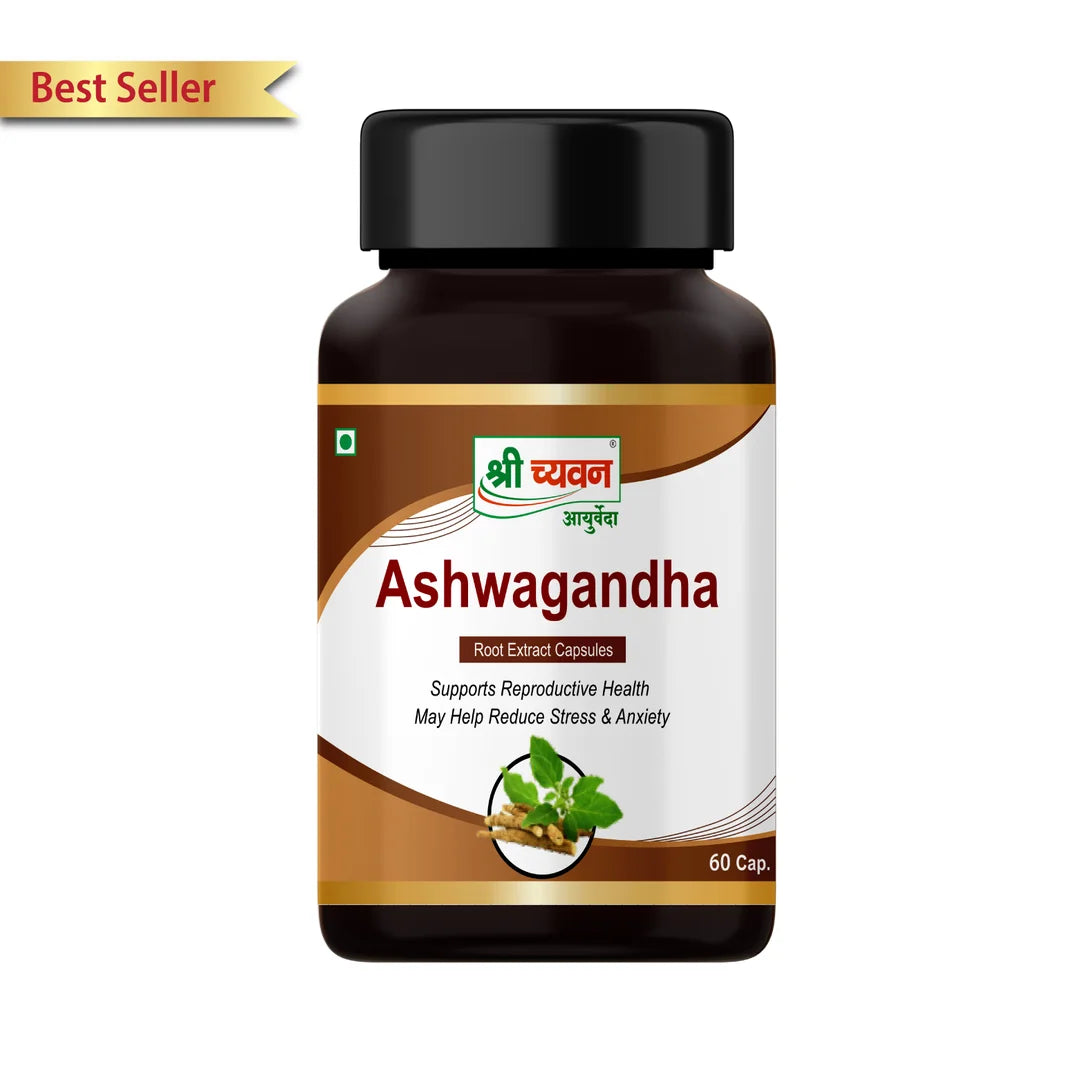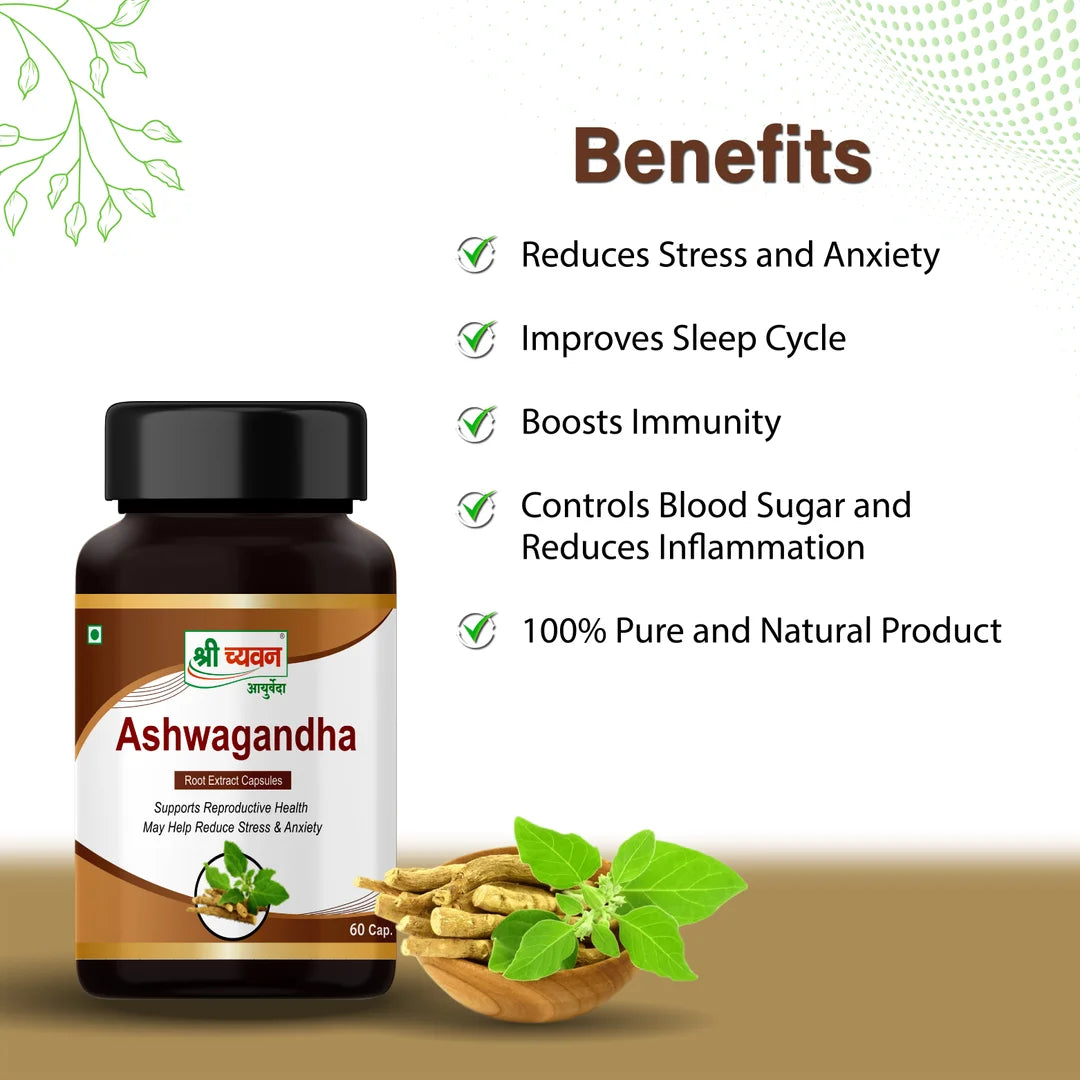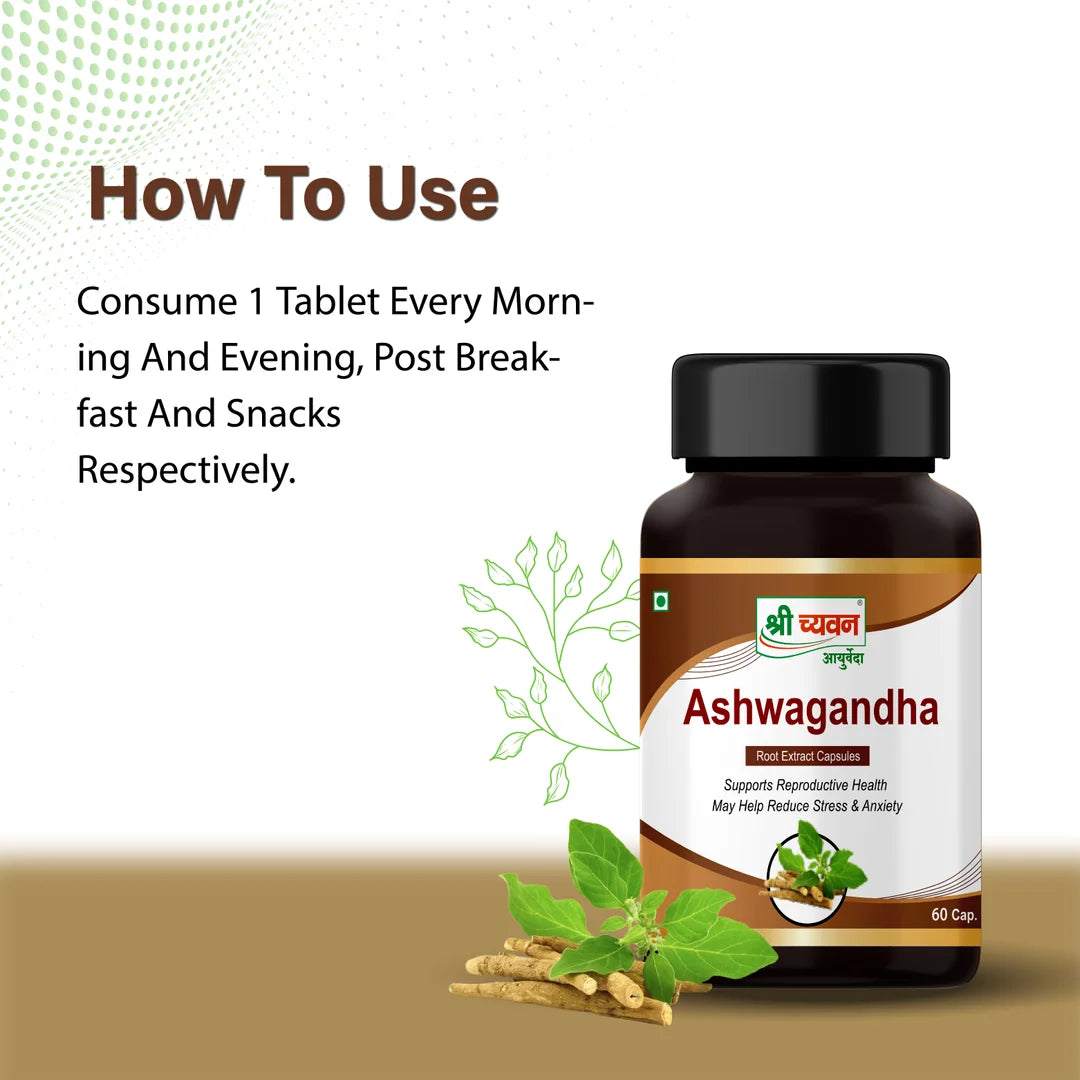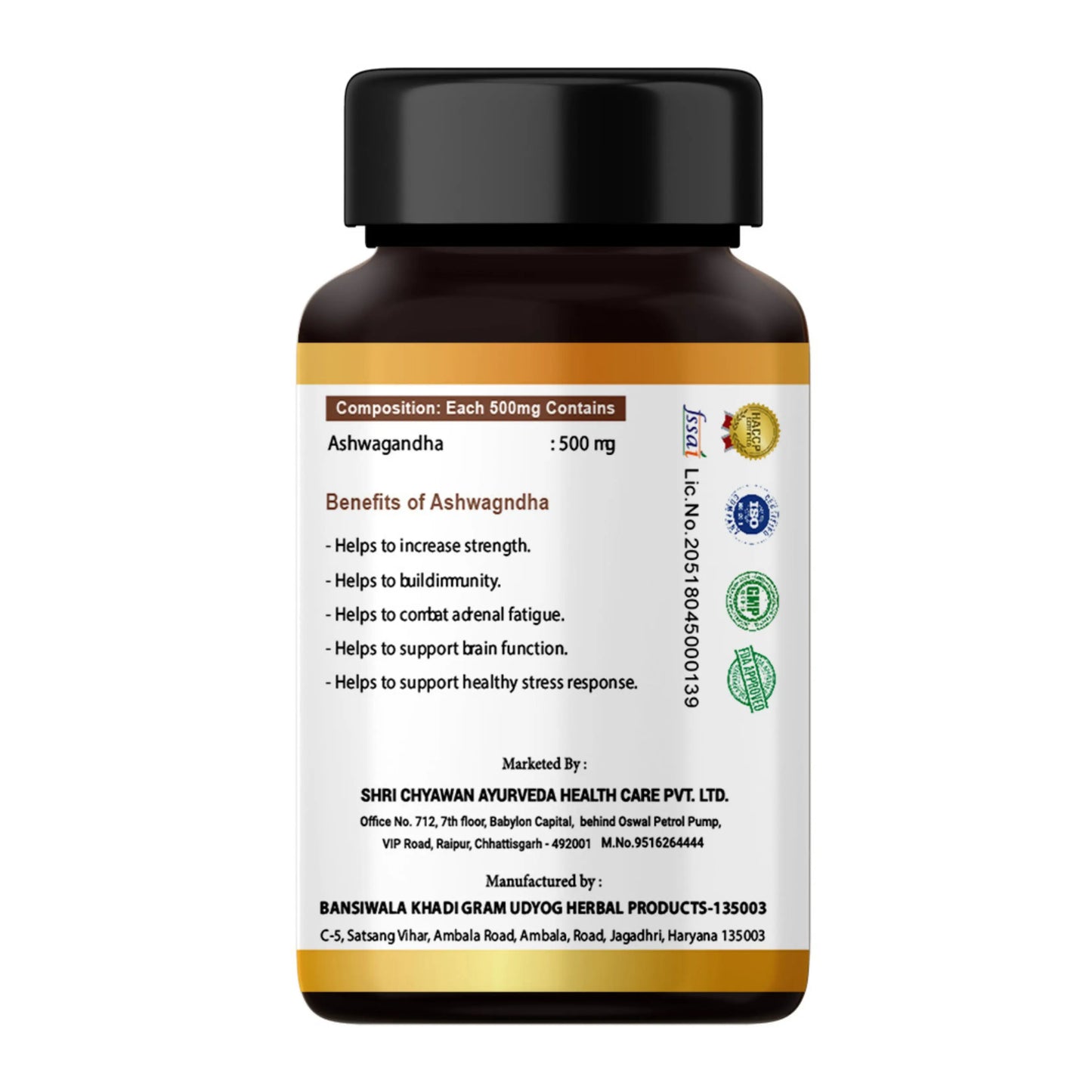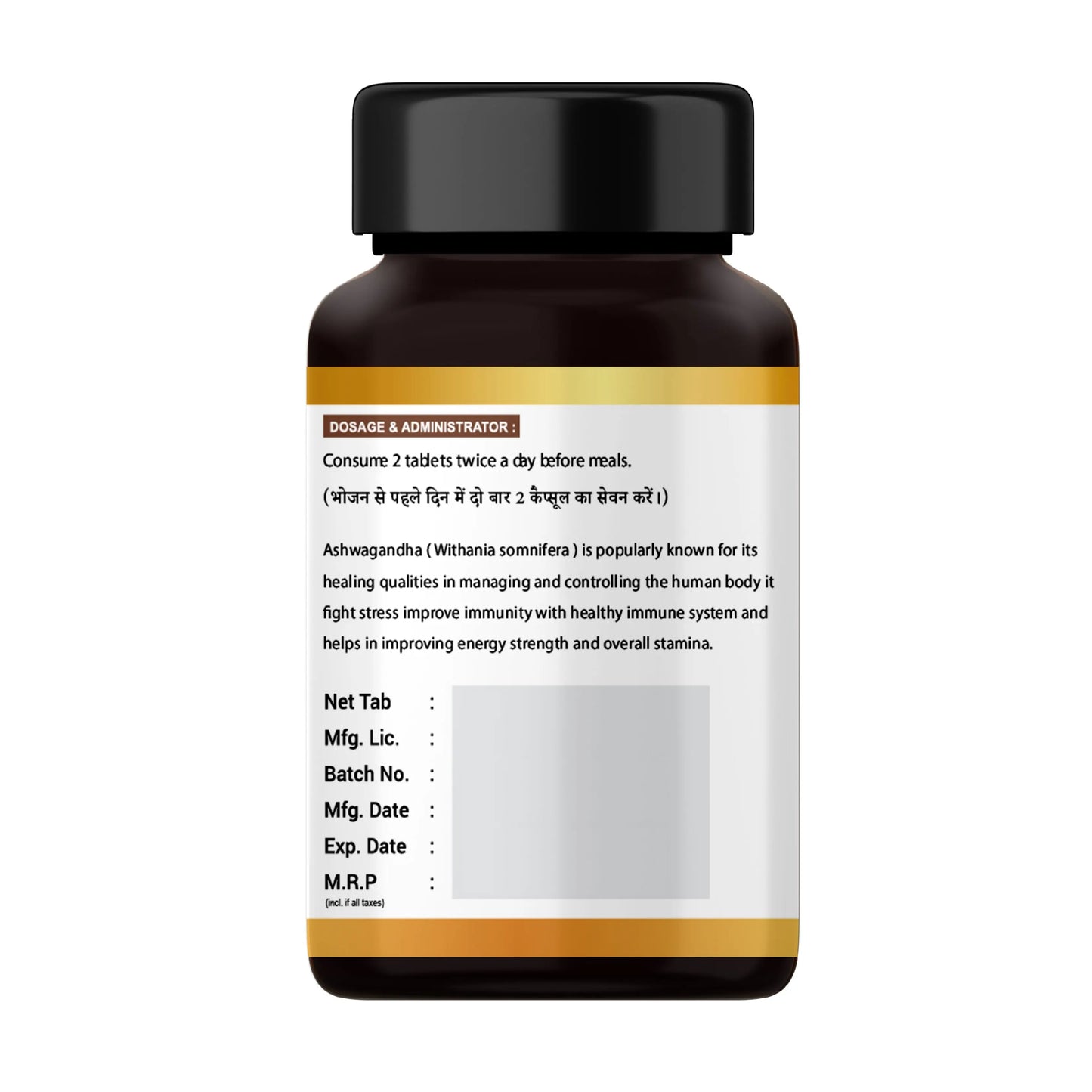Introduction to Ashwagandha
Ashwagandha, scientifically known as Withania somnifera, is a powerful adaptogenic herb traditionally used in Ayurvedic medicine. Often referred to as "Indian ginseng," it has gained popularity for its numerous health benefits, particularly among men. Known for its ability to help the body adapt to stress, Ashwagandha supports overall wellness, boosts energy levels, and enhances mental clarity. Its rich history and potent properties make it a valuable addition to modern health regimens, offering a natural approach to improving vitality and resilience.
Historical Significance of Ashwagandha
Ashwagandha has been a cornerstone of Ayurvedic medicine for over 3,000 years. Its name, derived from the Sanskrit words "ashva" (horse) and "gandha" (smell), reflects its traditional use to enhance strength and vitality, akin to that of a horse.
In ancient texts, such as the Charaka Samhita and the Sushruta Samhita, Ashwagandha was praised for its adaptogenic properties, helping individuals cope with stress and fatigue. It was often prescribed to improve overall health, enhance reproductive function, and promote longevity.
The herb's significance extended beyond just physical health; it was also used in spiritual practices to promote mental clarity and emotional balance. Today, modern research continues to validate its benefits, making Ashwagandha a symbol of holistic wellness that bridges ancient wisdom and contemporary health practices.
Nutritional Profile of Ashwagandha
Ashwagandha is not only revered for its therapeutic properties but also for its rich nutritional profile. This adaptogenic herb contains a variety of bioactive compounds that contribute to its health benefits. Key components include:
- Withanolides: These steroidal lactones possess anti-inflammatory and antioxidant properties, aiding in stress reduction and overall health.
- Alkaloids: Ashwagandha contains several alkaloids that support cognitive function and may enhance mood.
- Saponins: Known for their immune-boosting and anti-cancer effects, saponins contribute to the herb's overall health benefits.
- Iron: Essential for red blood cell production, iron helps combat fatigue and enhances energy levels.
- Vitamins and Minerals: Ashwagandha provides small amounts of important vitamins like vitamin C and several B vitamins, along with minerals such as calcium and magnesium.
This combination of nutrients makes Ashwagandha a powerful supplement for enhancing vitality, reducing stress, and promoting overall well-being.
Key Benefits of Ashwagandha for Men
Stress Reduction
One of the most significant benefits of Ashwagandha is its ability to reduce stress and anxiety. This herb acts as an adaptogen, helping the body adapt to physical and mental stressors. By lowering cortisol levels, the stress hormone, Ashwagandha promotes a sense of calm and well-being, allowing men to better manage daily challenges.
Increased Energy and Stamina
Ashwagandha is known to boost energy levels and enhance physical performance. Its adaptogenic properties help improve endurance and stamina, making it a popular choice for athletes and active individuals. Regular use can lead to improved exercise capacity, helping men feel more energetic throughout the day.
Enhanced Muscle Strength
Studies suggest that Ashwagandha can aid in increasing muscle mass and strength. It promotes the synthesis of muscle proteins and reduces muscle damage after exercise, making it beneficial for those looking to build muscle or improve athletic performance.
Improved Sexual Health
Ashwagandha has long been used to support male reproductive health. It is known to enhance libido, improve sperm quality, and increase testosterone levels, which can lead to better sexual performance and satisfaction. Its ability to reduce stress also plays a crucial role in enhancing sexual health.
Better Sleep Quality
Quality sleep is essential for overall health, and Ashwagandha can help improve sleep patterns. Its calming effects promote relaxation, making it easier to fall asleep and stay asleep. Improved sleep quality can further enhance mood, energy levels, and cognitive function.
Incorporating Ashwagandha into a daily routine can provide these significant benefits, contributing to better physical and mental health for men.
How to Use Ashwagandha
Dosage Recommendations
The recommended dosage of Ashwagandha can vary based on individual health needs and the specific form used. Generally, a daily dosage ranges from 300 mg to 600 mg of standardized extract, often taken in divided doses. It's essential to start with a lower dose to assess tolerance and then gradually increase it. Consulting a healthcare professional is advisable for personalized recommendations.
Forms of Ashwagandha
Ashwagandha is available in several forms, making it easy to incorporate into your routine:
- Powder: This form can be mixed into smoothies, milk, or water. It’s versatile and allows for easy dosage adjustments.
- Capsules/Tablets: Convenient and easy to swallow, capsules are a popular choice for those seeking precise dosages without the taste of the powder.
- Liquid Extracts/Tinctures: These provide a concentrated form of Ashwagandha and can be added to beverages or taken directly.
- Tea: Ashwagandha tea offers a soothing way to enjoy its benefits, combining the herb with other herbs for enhanced flavor.
Choosing the right form depends on personal preference and lifestyle, ensuring that you can easily include Ashwagandha in your daily regimen.
Potential Side Effects of Ashwagandha
While Ashwagandha is generally considered safe for most people, it can cause side effects in some cases. Here are a few potential side effects to be aware of:
- Gastrointestinal Issues: Some individuals may experience digestive discomfort, including nausea, diarrhea, or upset stomach, particularly with higher doses.
- Drowsiness: Due to its calming effects, Ashwagandha may cause drowsiness or sedation in some people. It’s advisable to avoid driving or operating heavy machinery after taking it.
- Hormonal Changes: In rare cases, Ashwagandha can affect hormone levels, potentially leading to changes in menstrual cycles or exacerbating conditions related to hormone-sensitive issues.
- Allergic Reactions: Although uncommon, some individuals may experience allergic reactions, including skin rashes or itching.
- Interference with Medications: Ashwagandha can interact with certain medications, especially sedatives, thyroid medications, and immunosuppressants. Consulting a healthcare professional before starting supplementation is recommended.
It’s essential to monitor your body’s response and consult with a healthcare provider if any adverse effects occur or if you have pre-existing health conditions.
Who Should Avoid Ashwagandha
While Ashwagandha offers numerous benefits, certain individuals should exercise caution or avoid its use altogether:
- Pregnant and Breastfeeding Women: Ashwagandha may stimulate uterine contractions and is generally not recommended during pregnancy. Its effects during breastfeeding are also not well-studied.
- Individuals with Autoimmune Diseases: Those with conditions like rheumatoid arthritis, lupus, or multiple sclerosis should consult a healthcare provider before using Ashwagandha, as it may stimulate the immune system.
- People with Hormonal Disorders: Individuals with hormone-sensitive conditions, such as certain cancers or thyroid disorders, should avoid Ashwagandha unless directed by a healthcare professional.
- Patients on Sedatives or Anti-anxiety Medications: Because Ashwagandha can enhance the effects of sedatives, it’s crucial for those on these medications to consult their doctor.
- Individuals with Allergies: Anyone with known allergies to Ashwagandha or related plants should avoid it to prevent allergic reactions.
Always consult a healthcare provider before starting any new supplement, especially if you fall into these categories or have underlying health concerns.
Shri Chyawan Ayurveda's Ashwagandha Capsule
Ashwagandha Capsule: It is the most important and miraculous ayurvedic medicine offering number of benefits. It also contains certain ingredients that help calm the brain, reduce swelling, lower blood pressure, etc. It is also called Winter Cherry.
Ashwagandha Capsule Ingredients: It consists of pure Ashwagandha root extracts.
Ashwagandha for Men:
Ashwagandha is a remarkable herb with a myriad of benefits for men. Whether it's enhancing physical performance, promoting mental well-being, or supporting sexual health, this adaptogen is a versatile ally in the journey to optimal health and vitality. Its benefits for men are manifold, encompassing physical, mental, and emotional well-being.
Ashwagandha for Women:
Ashwagandha offers immense benefits for women, addressing a wide range of health concerns from hormonal balance and fertility to stress management, cognitive function, and skin health. It offers numerous incredible benefits for women's health and well-being. Its natural properties can support physical, emotional, and mental health in various ways.
Ashwagandha Capsule Benefits:
-
Reduces Stress and Anxiety: Ashwagandha is best and popularly known for its ability to reduce stress and anxiety. It’s also classified as an adaptogen, a substance that helps the body to cope with stress.
-
Improves Sleep Quality: Ashwagandha effectively helps to improve sleep quality and regulates your sleep cycle. It helps to combat fatigue and boosts energy.
-
Improves Testosterone Levels: Ashwagandha helps to improve testosterone levels, which improves overall physical performance and boosts vitality and stamina.
-
Boosts Immunity: Ashwagandha is known to increase the White Blood Cells, which thereby helps to boost your overall immunity to fight various illness.
-
Blood Sugar and Inflammation: Ashwagandha helps to maintain ideal blood sugar levels, reduces inflammation, and improves skin health.
- Natural & Pure: Ashwagandha capsules are made from Ashwagandha root extracts and they are pure and natural.
How to use: Consume 2 capsules twice a day before meals.
Conclusion
Ashwagandha is a powerful adaptogenic herb with a rich history and a variety of benefits, particularly for men. From stress reduction and increased energy to enhanced muscle strength and improved sexual health, its advantages make it a valuable addition to many wellness routines. However, it's essential to use it mindfully, considering potential side effects and who should avoid it. By understanding how to incorporate Ashwagandha safely and effectively, individuals can harness its full potential to promote overall health and well-being. Always consult a healthcare professional for personalized advice to ensure the best results.
FAQs about Ashwagandha
1. What is Ashwagandha?
Ashwagandha is an adaptogenic herb used in Ayurvedic medicine, known for its ability to reduce stress, enhance vitality, and improve overall health.
2. How does Ashwagandha work?
It helps the body adapt to stress by regulating cortisol levels and promoting a sense of calm, while also boosting energy and stamina.
3. Is Ashwagandha safe to use?
Generally, Ashwagandha is safe for most people, but individuals with certain health conditions or those who are pregnant or breastfeeding should consult a healthcare provider before use.
4. What are the common forms of Ashwagandha?
It is available in several forms, including powder, capsules, liquid extracts, and tea.
5. How long does it take to see results?
Many people may begin to notice benefits within a few weeks of consistent use, but results can vary depending on the individual.
6. Can Ashwagandha help with sleep?
Yes, Ashwagandha is known to promote better sleep quality by reducing stress and anxiety.
7. Are there any side effects?
Potential side effects include gastrointestinal discomfort, drowsiness, and hormonal changes in some individuals. Always monitor your body’s response.
8. How should I take Ashwagandha?
The typical dosage ranges from 300 mg to 600 mg of standardized extract per day, but it's best to start with a lower dose and consult a healthcare professional for personalized guidance.
Free Consultation with our Expert Doctor- 📞📞 95162 64444





